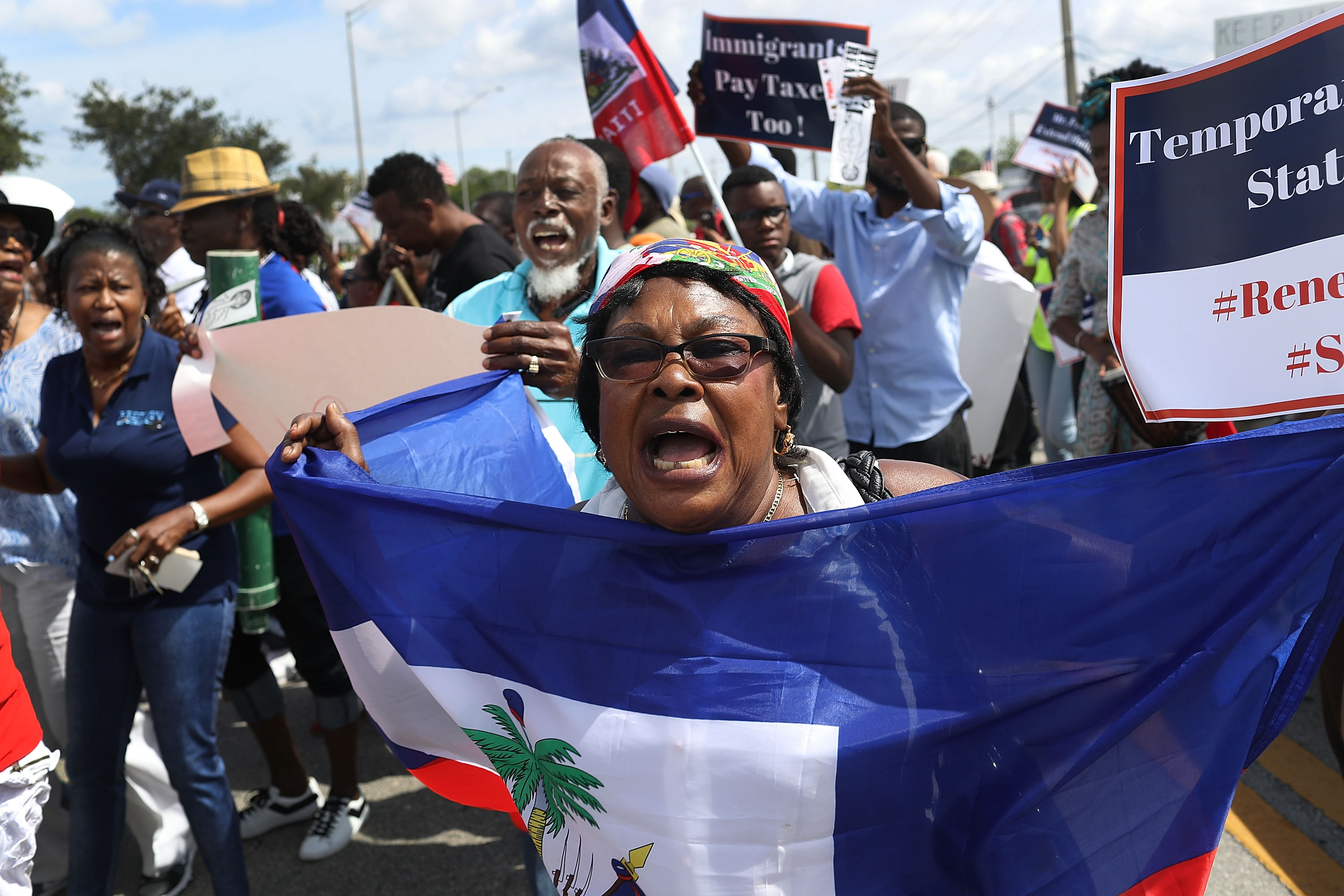UPDATE: U.S. Government Extends Temporary Protected Status for Haitian Nationals For 6 More Months

Update, May 22, 3:00PM ET:
On May 22, the Secretary of the Department of Homeland Security, John F. Kelly, announced that the United States government would extend temporary protected status (TPS) for six months to Haitian nationals. In a press statement, Kelly noted that country conditions in Haiti have been improving since the 2010 earthquake that led to the TPS designation. He asked Haitian nationals to begin preparing for their departure by obtaining travel documents or applying for immigration benefits to which they are entitled. The extension of TPS lasts from July 23, 2017 through January 22, 2018. Kelly will decide before the expiration date whether to extend TPS again, re-designate TPS status for Haiti or to terminate it altogether.
====
The Trump Administration is poised to make a decision that could affect the lives of 58,000 Haitian immigrants living and working in the United States. John Kelly, Secretary of the Department of Homeland Security (DHS), must decide by May 23 whether the government will extend temporary protected status, or TPS, for Haitian immigrants.
TPS is an 18-month status provided to foreign nationals who cannot return safely to their homes because of dangerous conditions in their countries such as armed conflicts, environmental disasters or epidemics. Beneficiaries of TPS status may work and travel in the United States and cannot be deported. The U.S. government designated TPS for Haiti after the 2010 earthquake devastated parts of the nation. The designation has been renewed several times. As a result, approximately 58,700 Haitians have received TPS status and have settled in cities including Miami and New York City, building vibrant neighborhoods, small businesses and families while sending remittances back home to support family members.
Haiti’s TPS designation expires in July of this year, which means that Haitians with this status may be deported from the U.S. For months now, various stakeholders have been pressing DHS to renew the designation, citing disruptions in the lives of Haitians who are settled in the United States, and dangerous conditions in Haiti exacerbated by a 2016 hurricane and a cholera epidemic started by United Nations peacekeepers in 2010. That epidemic has killed thousands and has led to food shortages, infrastructure damage and a lack of housing, health care and sanitation services. As a result of these conditions, the Institute for Justice & Democracy in Haiti notes that the country is incapable of properly receiving and resettling detainees at this time.
Supporters of TPS include government agencies such as the New York City’s Office of Immigrant Affairs, labor unions such as UNITE HERE, community activists in Miami and New York City, elected officials including the mayor of Boston, and businesses such as the Walt Disney Company, which employs 500 Haitian workers in Central Florida.
"If the administration declines to extend TPS, they will rip apart thousands of Haitian immigrant families who have sought temporary refuge in the U.S. while their country recovers,” Carl Lipscombe, deputy director of Black Alliance for Just Immigration (BAJI), tells Colorlines. “The government will also be sending the message that Black, immigrant and poor communities are no longer welcome in the United States.”
The Trump Administration has sent various signals about its stance on Haitian TPS in the past month. In April, James W. McCament, acting director of U.S. Citizenship and Immigration Services (USCIS), recommended that TPS designation for Haiti be terminated. Despite concluding that “[t]he institutional capacity of the Haitian [g]overnment to respond to the lingering effects of the earthquake remains weak,” USCIS believes that conditions have sufficiently improved and that it is no longer in the U.S.’ national interest to extend the TPS designation.
The government’s response to renewing TPS status seems to be influenced by Trump’s tough-on-immigration enforcement policies. In April, the Associated Press published internal emails from a high-ranking DHS official asking for data on crimes committed by Haitians who have TPS status and information about how many Haitians with TPS status use public assistance. Here’s one of those emails that Kathy Nuebel Kovarik, chief of the Office of Policy and Strategy at USCIS, sent to employees on April 28:
“Please dig for any stories (successful or otherwise) that would show how things are in Haiti–i.e. rebuilding stories, work of nonprofits, how the U.S. is helping certain industries…We should also find any reports of criminal activity by any individual with TPS. Even though it’s only a snapshot and not representative of the entire situation, we need more than ‘Haiti is really poor’ stories.”
Immigrant rights activists responded quickly and pointed out that the leaked emails reflect an alarming connection made by the government between crime and Black immigrants. “The wanton racism against a group of Black immigrants is not surprising. What is surprising is the brazenness with which the Trump administration is attempting to carry it out,” said Patrice Lawrence, policy and advocacy manager for the UndocuBlack Network in a May 9 press release from UndocuBlack Network and the National Immigration Law Center.
Activists are also reminding President Trump of a promise that he made while campaigning in Little Haiti last September. He said then: “Whether you vote for me or you don’t vote for me, I really want to be your greatest champion. And I will be your champion, whether you vote for me or not.” In a May 3 interview for "Democracy Now," Marleine Bastien, executive director of Haitian Women of Miami, responded to Trump’s campaign promise: “We hope that he will do the right thing, because . . . sending all these people back to Haiti will be a travesty.”
Advocates are asking people to sign a petition, raise awareness on social media using #RenewTPSNow and #SaveTPS, and contact the Department of Homeland Security at 202-618-5172 to call for the renewal of the TPS designation for thousands of Haitian immigrants.
